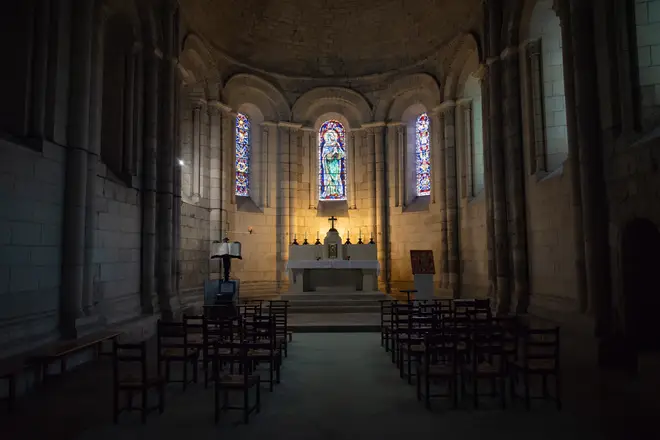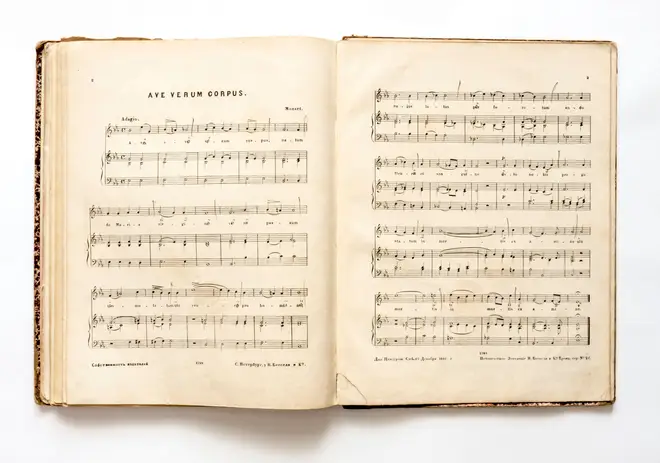On Air Now
The Classic FM Hall of Fame with Anne-Marie Minhall 12pm - 3pm
9 September 2022, 15:06 | Updated: 18 September 2023, 16:35

Mozart's 'Ave Verum Corpus' at St James' Roman Catholic Church
The Latin hymn ‘Ave Verum Corpus’ has been set by some of classical music’s best-loved composers, most famously by Mozart.
‘Ave Verum Corpus’, meaning ‘Hail true body’, is a Eucharistic hymn (holy communion hymn) performed in both religious and secular settings, that dates to the 13th century. First discovered in a Franciscan manuscript, its words have been most attributed to Pope Innocent VI.
The hymn has become best known through its sublime musical settings, including those of English composers William Byrd and Edward Elgar.
None perhaps is more famous than that of Wolfgang Amadeus Mozart, whose breathtaking, three-minute setting seems to elevate the Latin chant to divine status.

Wolfgang composed his ‘Ave Verum Corpus’, a motet in D major, in 1791 – the last year of his life – during a visit to Austria to see his wife, Constanze.
He composed the motet for his friend Anton Stoll, who was the musician at a small church in Baden. At the time of writing, Mozart was also in the middle of composing his final opera, The Magic Flute.
Marked with just one performance direction, ‘sotto voce’ (subdued) in Mozart’s hand on the score, the homophonic setting is arranged for SATB choir, string instruments and organ. It contains just 46 bars of music, omitting the final three lines of the full text.
Mozart intended for it to be performed on the Feast of Corpus Christi, by the small-town church choir.

Ave verum corpus, natum
de Maria Virgine,
vere passum, immolatum
in cruce pro homine
cuius latus perforatum
fluxit aqua et sanguine:
esto nobis praegustatum
in mortis examine.
[O Iesu dulcis, O Iesu pie,
O Iesu, fili Mariae.
Miserere mei. Amen]
Hail, true Body, born
of the Virgin Mary,
having truly suffered, sacrificed
on the cross for mankind,
from whose pierced side
water and blood flowed:
Be for us a sweet foretaste
in the trial of death!
[O sweet Jesus, O holy Jesus,
O Jesus, son of Mary,
have mercy on me. Amen.]